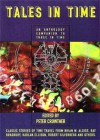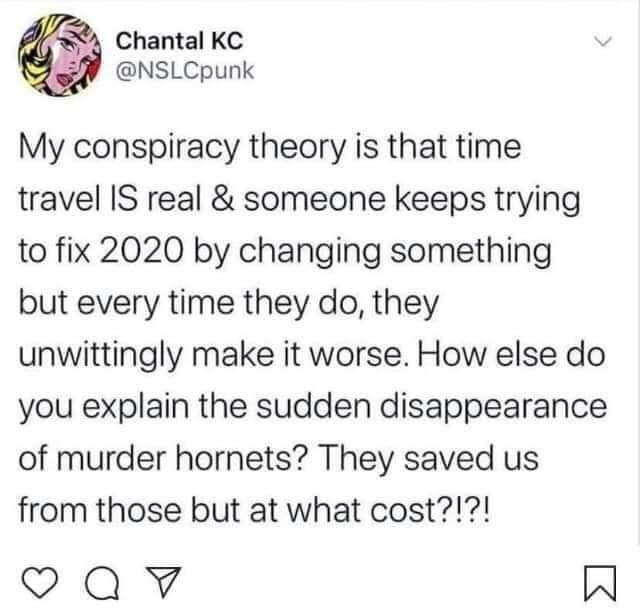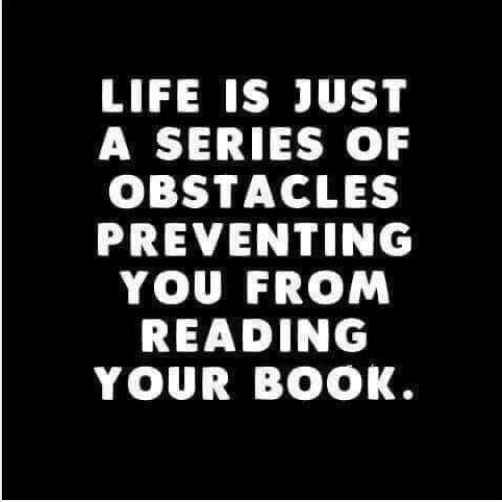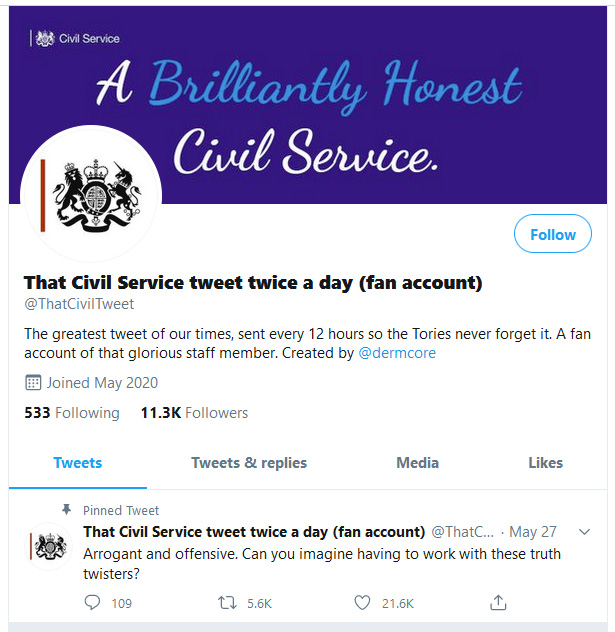Currently reading
A Court of Thorns and Roses
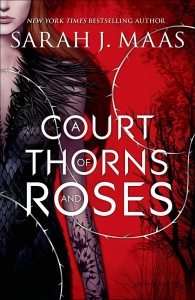
by Sarah Maas
This is my first Sarah Maas book and despite some challenging format on the ARC, it drew me right in, Fayre is one of three sisters who live in reduced circumstances after having known a comfortable life. Their mother is dead and their father is crippled and often in a world of his own, because it was some nasty creditors who crippled him in painful ways.
Fayre hunts for food, since the family is destitute. The forest is dangerous, full of hungry wolves as well as fae shapeshifters, and when she encounters a large wolf stalking the same deer she's hunting, she can't be sure which it is. The tension of her attempt to hunt food without becoming prey herself got the story off to a good start.
I wondered many times if this was meant to be a re-imagining of Beauty and the Beast, as there were a lot of similar elements. Fayre is a strong but fearful character, mistrusting the Fae effectively as monsters despite their physical beauty. These are not your fairytale Fae! She encounters some chilling creatures in the course of the story.
The first half kept me riveted, but then it started losing me. The standard gratuitous sex scene that seems to be a feature of New Adult books was better written than most, but still the same old actions. There was some inconsistency in characters and somebody needs to explain to the author that villages don't have 'blocks', an exclusively American term used by city dwellers.
There were also several occasions where the use of a word in a sentence would klunk, just not quite fitting. Despite that, the imaginative encounters with various supernatural characters and especially in the trials Feyre had to face were well done. The end was fairly predictable, but fit the story.
I don't think I'll be continuing the series, but overall I did enjoy the read.
 6
6
The Secret of the Alchemist

by Colm Holland
This is a book unlike anything I've seen before. It is written by someone who was in the publishing industry when The Alchemist by Paul Coelho first came out in English translation. The introduction explains how the author was in charge of determining which new releases would fill the scarce shelves of the Australian book market and after reading the manuscript of Coelho's book, saw a bestseller and ordered an unprecedented number of copies.
But that isn't all. It goes on to tell how a meeting with Coelho led to a mystical experience and understanding of the book far beyond a story of a shepherd discovering his true will. That mystical revelation and subsequent changes to the author's life, from a fiction story, is what this book is all about.
At the time of writing this review I haven't read The Alchemist, though it's on my tbr. I wondered many times while reading, did Coelho intend to speak in allegory for deeper meanings or did Holland read his own mystical journey into what was intended only as a hero's journey story? I have no answer to that, but it apparently worked well for Holland and put his life on a satisfying track.
The explanation of the stages of spiritual Alchemy was worth the read alone. The "Dark night of the soul", enlightenment, then active phases might have come out of a book in the Mind, Body, Spirit section and perhaps that is where this one will be categorised. Much of it is personal to the author, yet the journey has similar stages to anyone following this spiritual path, whatever symbols they couch it in.
An interesting read and well-written so that it kept interest.
 8
8
Practically Pagan - An Alternative Guide to Cooking

by Rachel Patterson
As the title would suggest, this is a cookery book, but it focuses on working with practicality; getting the most out of your food supplies to minimise waste and working with the fruits and vegetables in season rather than shipping stuff all over the planet. It's written in a fairly engaging style with just a touch of woo and the recipes are clear and would be easy to follow.
The author states her love of baking in the introduction and that is shown in some very original baked goods. While a lot of these are too 'busy' for my personal taste (adding fruits, nuts, etc) there are some I will certainly give a try. She gives equal space to meat, vegetarian and vegan recipes and they are set out by the month for what is in season or suitable for the climate. For example, hot, filling foods in winter and lighter foods for summer.
My only issue is that I'm the world's fussiest eater and suggesting I would ever touch things like parsnips or chickpeas is optimistic and dependent on a serious famine, but I won't hold that against the author as I suspect I'm not her ideal target audience. For someone with broader taste and a desire to eat healthy, it's a great resource.
There is definite originality in the recipes and thinking outside the box. For example, Bubble and Squeak put in a soup. For the non-English, Bubble and Squeak is basically mashed potato mixed with leftover vegetables, usually cabbage, and fried as a pancake. The idea of putting it in a soup sounds soggy to me, but it might just work.
I enjoyed the segments at the beginning of each month, talking about the seasons. The majority of the recipes are too healthy for my blood, but I enjoyed reading the book and would definitely recommend it to those who want healthy recipes to fit the seasons.
 3
3
Dead Sea

by Tim Curran
This was wonderfully atmospheric.
From the Prologue:
"Shut your mind down, shut it right down or they will hear you thinking and if they hear you thinking they will find you."
How many children have hidden under their blankets in the dark thinking just this? Invoking our childhood fears from the start, the story goes on to trigger other fears, including fog, darkness and most notably, the vast open sea.
Several members of a construction crew have never been out of sight of land before, but they needed this job. What awaits them goes far beyond fear of a sinking ship or natural disasters when the ship enters an eerie fog in the vicinity of the Bermuda Triangle. Everything seems wrong. Watches and radios don't work properly and sea creatures unlike anything even the seasoned sailors have ever seen before add to the otherworldly feeling of being somewhere unknown, where all the rules have changed.
This book could do with a technical edit as there are periodic words missing or shoved together, but the writing is exquisite and the characters develop into very distinctive personalities, some of them sensible and others so irritating you want to just shoot them for the good of the group. The eerie atmosphere is very well done and keeps the pages turning to the point of losing sleep over 'just one more chapter'.
I loved the way the author got inside the minds of men who are trying to hang on to sanity in circumstances that test their limits more and more as time goes on. Sometimes I've had to stop reading just to get out of that world for a little while myself! I wanted a book with monsters. Well, I definitely got it with this one. It took me unequivocally into another world where nothing is as it should be and the rules become clear only when it's too late.
As if that weren't enough, we get some theoretical Physics! One of my great interests and the reason I love time travel books. It was sensibly done, going just far enough. My only complaint besides the typo errors is that an aspect of the ending was a little too convenient for something untried, but by then reality was fully suspended so I didn't care too much. Despite my little criticisms, this one gets a full 5 stars for the amount of enjoyment it gave me.
 2
2
A Short History of (Nearly) Everything Paranormal
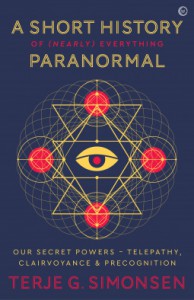
by Terje G. Simonsen
Non-Fiction
One thing I would say to publishers is that printing page after page of reviews at the beginning of a book is wasted space because the book is in my hand, therefore I've already made the decision to read it! After flipping past 2% of the book I finally got to the table of contents and things began to look interesting.
One of the things I liked immediately about this book is that it doesn't push the woo, but allows for healthy scepticism. Various stories are told of documented paranormal or ESP incidents, but then the author points out any flaws or subjectivity in the sources, leaving the reader to make up their own mind. It's a refreshing approach!
The first chapter was about psychic archaeology and I found it very interesting, not least of all because I didn't know just how often it's used to find things! It appears to be an ongoing practice. This was followed by a chapter on military experiments is psychic phenomena which I didn't expect to find as interesting, but found myself surprised.
The competition between the Russians and Americans on this area of research is fairly common knowledge, but much of the results and findings were far more fascinating than I realised. Unlike archaeology, the military (as far as we know) has long since abandoned this research, just like the UCLA Parapsychology Lab was closed down in the late 1970s, but some information has since been declassified and the author gives sources to read some of it without drawing attention to oneself by looking directly at the CIA website.
The third chapter was a bit more woolley. They used the word anthropology but basically it's about the sort of stories you hear about that can't be quantified. Uri Geller, a woman who can stop a frog's heart, that sort of thing. Again, the author acknowledges the insubstantial nature of these stories. Some things you just can't prove if you weren't there.
This is naturally followed by psychology, focusing mainly on Freud and Jung. Jung of course, coined the term, Synchronicity and there were some surprising revelations about Freud's interest in telepathy and other psi phenomena. Then we move on to what I think was the longest chapter about the relationship between parapsychology and science.
This one covers a lot of territory. It starts talking about Mesmer and flows into other history involving hypnosis and precognition, eventually coming to occult groups and secret societies. The Golden Dawn gets a fair bit of attention, but that's as far as it goes. I did find it intersting how many well known scientists had at least an open mind about parapsychology or at least telepathy, from Freud to Darwin and even Isaac Newton.
There's a section on scepticism and a chapter on lab experiments, though it surprisingly didn't mention the Parapsychology Lab at UCLA. Overall I found the book very interesting.
 3
3
A Short History of (Nearly) Everything Paranormal

by Terje G. Simonsen
Non-Fiction
One thing I would say to publishers is that printing page after page of reviews at the beginning of a book is wasted space because the book is in my hand, therefore I've already made the decision to read it! After flipping past 2% of the book I finally got to the table of contents and things began to look interesting.
One of the things I liked immediately about this book is that it doesn't push the woo, but allows for healthy scepticism. Various stories are told of documented paranormal or ESP incidents, but then the author points out any flaws or subjectivity in the sources, leaving the reader to make up their own mind. It's a refreshing approach!
The first chapter was about psychic archaeology and I found it very interesting, not least of all because I didn't know just how often it's used to find things! It appears to be an ongoing practice. This was followed by a chapter on military experiments is psychic phenomena which I didn't expect to find as interesting, but found myself surprised.
The competition between the Russians and Americans on this area of research is fairly common knowledge, but much of the results and findings were far more fascinating than I realised. Unlike archaeology, the military (as far as we know) has long since abandoned this research, just like the UCLA Parapsychology Lab was closed down in the late 1970s, but some information has since been declassified and the author gives sources to read some of it without drawing attention to oneself by looking directly at the CIA website.
The third chapter was a bit more woolley. They used the word anthropology but basically it's about the sort of stories you hear about that can't be quantified. Uri Geller, a woman who can stop a frog's heart, that sort of thing. Again, the author acknowledges the insubstantial nature of these stories. Some things you just can't prove if you weren't there.
This is naturally followed by psychology, focusing mainly on Freud and Jung. Jung of course, coined the term, Synchronicity and there were some surprising revelations about Freud's interest in telepathy and other psi phenomena. Then we move on to what I think was the longest chapter about the relationship between parapsychology and science.
This one covers a lot of territory. It starts talking about Mesmer and flows into other history involving hypnosis and precognition, eventually coming to occult groups and secret societies. The Golden Dawn gets a fair bit of attention, but that's as far as it goes. I did find it intersting how many well known scientists had at least an open mind about parapsychology or at least telepathy, from Freud to Darwin and even Isaac Newton.
There's a section on scepticism and a chapter on lab experiments, though it surprisingly didn't mention the Parapsychology Lab at UCLA. Overall I found the book very interesting.
 5
5
A Short History of (Nearly) Everything Paranormal

by Terje G. Simonsen
Non-Fiction
One thing I would say to publishers is that printing page after page of reviews at the beginning of a book is wasted space because the book is in my hand, therefore I've already made the decision to read it! After flipping past 2% of the book I finally got to the table of contents and things began to look interesting.
One of the things I liked immediately about this book is that it doesn't push the woo, but allows for healthy scepticism. Various stories are told of documented paranormal or ESP incidents, but then the author points out any flaws or subjectivity in the sources, leaving the reader to make up their own mind. It's a refreshing approach!
The first chapter was about psychic archaeology and I found it very interesting, not least of all because I didn't know just how often it's used to find things! It appears to be an ongoing practice. This was followed by a chapter on military experiments is psychic phenomena which I didn't expect to find as interesting, but found myself surprised.
The competition between the Russians and Americans on this area of research is fairly common knowledge, but much of the results and findings were far more fascinating than I realised. Unlike archaeology, the military (as far as we know) has long since abandoned this research, just like the UCLA Parapsychology Lab was closed down in the late 1970s, but some information has since been declassified and the author gives sources to read some of it without drawing attention to oneself by looking directly at the CIA website.
The third chapter was a bit more woolley. They used the word anthropology but basically it's about the sort of stories you hear about that can't be quantified. Uri Geller, a woman who can stop a frog's heart, that sort of thing. Again, the author acknowledges the insubstantial nature of these stories. Some things you just can't prove if you weren't there.
This is naturally followed by psychology, focusing mainly on Freud and Jung. Jung of course, coined the term, Synchronicity and there were some surprising revelations about Freud's interest in telepathy and other psi phenomena. Then we move on to what I think was the longest chapter about the relationship between parapsychology and science.
This one covers a lot of territory. It starts talking about Mesmer and flows into other history involving hypnosis and precognition, eventually coming to occult groups and secret societies. The Golden Dawn gets a fair bit of attention, but that's as far as it goes. I did find it intersting how many well known scientists had at least an open mind about parapsychology or at least telepathy, from Freud to Darwin and even Isaac Newton.
There's a section on scepticism and a chapter on lab experiments, though it surprisingly didn't mention the Parapsychology Lab at UCLA. Overall I found the book very interesting.
 4
4
A Short History of (Nearly) Everything Paranormal

by Terje G. Simonsen
Non-Fiction
One thing I would say to publishers is that printing page after page of reviews at the beginning of a book is wasted space because the book is in my hand, therefore I've already made the decision to read it! After flipping past 2% of the book I finally got to the table of contents and things began to look interesting.
One of the things I liked immediately about this book is that it doesn't push the woo, but allows for healthy scepticism. Various stories are told of documented paranormal or ESP incidents, but then the author points out any flaws or subjectivity in the sources, leaving the reader to make up their own mind. It's a refreshing approach!
The first chapter was about psychic archaeology and I found it very interesting, not least of all because I didn't know just how often it's used to find things! It appears to be an ongoing practice. This was followed by a chapter on military experiments is psychic phenomena which I didn't expect to find as interesting, but found myself surprised.
The competition between the Russians and Americans on this area of research is fairly common knowledge, but much of the results and findings were far more fascinating than I realised. Unlike archaeology, the military (as far as we know) has long since abandoned this research, just like the UCLA Parapsychology Lab was closed down in the late 1970s, but some information has since been declassified and the author gives sources to read some of it without drawing attention to oneself by looking directly at the CIA website.
The third chapter was a bit more woolley. They used the word anthropology but basically it's about the sort of stories you hear about that can't be quantified. Uri Geller, a woman who can stop a frog's heart, that sort of thing. Again, the author acknowledges the insubstantial nature of these stories. Some things you just can't prove if you weren't there.
This is naturally followed by psychology, focusing mainly on Freud and Jung. Jung of course, coined the term, Synchronicity and there were some surprising revelations about Freud's interest in telepathy and other psi phenomena. Then we move on to what I think was the longest chapter about the relationship between parapsychology and science.
This one covers a lot of territory. It starts talking about Mesmer and flows into other history involving hypnosis and precognition, eventually coming to occult groups and secret societies. The Golden Dawn gets a fair bit of attention, but that's as far as it goes. I did find it intersting how many well known scientists had at least an open mind about parapsychology or at least telepathy, from Freud to Darwin and even Isaac Newton.
There's a section on scepticism and a chapter on lab experiments, though it surprisingly didn't mention the Parapsychology Lab at UCLA. Overall I found the book very interesting.
 4
4
June 2020 Wrap-Up
I haven't bothered with these monthly wrap-up posts in recent months because I've got so little reading done and with moving my account, it just got lost in the shuffle.
So anyway, four books finished in June. Only one fiction that I chose to read and it was pretty good. Three non-fiction from Netgalley. I seem to have a backlog of those all of a sudden. Some of them are a bit woo but I do take an interest in all sorts of things.
I'm reading several books at once so I may have more books done by the end of July. I'm still getting back to normal reading after the end of the world in march so I'm just glad to be reading again!
 9
9
 1
1
The Secrets of Ayurveda
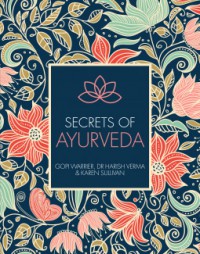
by Gopi Warrior, Dr. Harish Verma, Karen Sullivan
Non-fiction
I've been aware of Ayurveda for a while but this is the first time I sat down and read a book about it. This one is divided into four chapters: Ayurveda: The Science of Life, The Ayurdedic Approach, Diet and Lifestyle and Practitioner Led or Self-Help?
The first chapter explains what Ayurveda is and gives history and a method to determine your Ayurvedic constitution. It points out that medicine is one "spoke on the wheel" of a holistic lifestyle approach to promote balance and good health, thereby making it easier to combat illness and mostly prevent it.
It explains that illness affects both body and mind and not just one in isolation of the other. It claims that modern illnesses like chronic fatigue and irritable bowel syndrome have been successfully treated with Ayurveda when modern medicine has failed.
It has its roots in Hinduism and both date back over 5000 years, yet stay dynamic to keep up with modern conditions. There are some surprising facts cited about the history, like knowledge of cells and microscopic organisms in a book written 2000 years before the microscope was invented. There's a strong spiritual connection with the practice, yet it embraces science and finds a balance between the two.
The book is filled with colourful pictures of the sort you might see in Hindu texts or temples and these are accompanied by snippets of relevant information. Over all the book is beautifully laid out.
Naturally the Hindu belief system that Ayurveda is based in comes into it and the concept of Karma is explained in full as well as the belief in reincarnation connected with it. In some ways the book is repetitive as the basic concepts get restated many times, but I can see why it is important to drive a different way of thinking into the average western mind.
I admit to feeling some scepticism about the physical types and how it affects the person to be one or another. It seemed too generalised to me. Having said that, I fell heavily into the Kapha category. The second chapter expands on methods and the third chapter, as the title suggests, deals with diet and lifestyle. The final chapter explains when you need to see a practitioner and how to treat yourself at home.
Overall I found the book very informative and easy to follow. While I might not be in complete alignment with the beliefs expressed, they are explained well and I felt the book covered the subject very thoroughly and clearly.
 3
3
 1
1
The Brothers York

by Thomas Penn
For some reason I expected this to be Historical Fiction, but it turned out to be History. It's about the Wars of the Roses and the Brothers from the York dynasty who might have filled the place that the Tudor family does in history instead, if it hadn't been for in-fighting.
There are long chapters with just the occasional line break. As such it took me quite a long time to read it in small increments. It was also just a bit dry, but the subject is interesting and kept my attention. I found it amazing how England came so close to having a very different history!
Overall I really enjoyed the book and it filled in a big gap in the my knowledge of history. I do prefer historical accounts that tell the story of people rather than impersonal war statistics and this definitely fulfilled that preference for me.
Crystal Zodiac
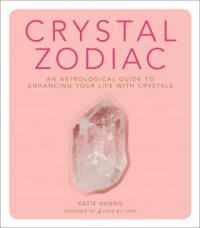
by Katie Huang
This is the first book I've seen that melds crystal healing with astrology. Interestingly, I've recently been reading a book on Ayurvedic medicine and found precedent for this combination there. It starts off with some very basic information about astrology that would be useful to someone totally new to the subject, but already familiar to anyone who has read anything else about astrology.
This is followed by similarly basic information about crystals, but this veered into belief rather than practical instruction and I found it of little use. After a bit of woo, it got to the part I was looking for; segments on astrological placements and which stones would be useful for specific purposes.
It goes through each of the twelve signs, giving an overview followed by small segments about the significance of the Sun, Moon and Ascendant, assigning stones to each, then covers the "personal planets", Venus, Mercury and Mars. The book does not address the outer planets but explains how they are slow moving and tend to affect generations more than individuals.
It gives a few basic spells, mostly based on visualisation and covering basic things like love spells, communication and personal insight. While I found the information a bit light, I did see it as useful and would certainly recommend it to someone new to these subjects and of use to people wanting to expand work with crystals.
 14
14
